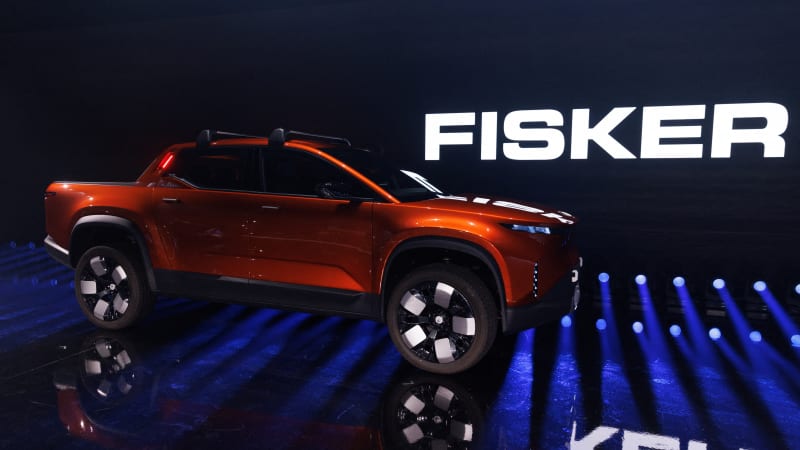Nissan, Fisker in advanced talks on investment, partnership

Nissan is in advanced talks to invest in electric vehicle maker Fisker in a deal that could provide the Japanese automaker with access to an electric pickup truck while giving the struggling startup a financial lifeline, according to two people familiar with the negotiations.
The deal could close this month, said the sources, who asked not to be identified because the talks are ongoing and have not been finalized.
Terms being discussed include Nissan investing more than $400 million in Fisker’s truck platform and building Fisker’s planned Alaska pickup starting in 2026 at one of its U.S. assembly plants, one of the sources said. Nissan would build its own electric pickup on the same platform, the source said. Nissan has U.S. assembly plants in Mississippi and Tennessee.
Fisker said on Thursday, when it announced it might not be able to continue as a going concern and would cut 15% of its workforce, that it was in talks with a large automaker for a potential investment and joint development partnership. It did not name the automaker.
A Fisker spokesman said the company does not comment on speculation, while Nissan officials were not immediately available to comment.
Fisker shares had been down about 45% before the Reuters report but pared those losses and were trading down about 25% with a market capitalization of more than $295 million.
The term sheet is ready and the deal is going through due diligence, one of the sources said.
Nissan was an EV pioneer with its fully battery powered Leaf hatchback in 2010 but has since struggled in the face of nimbler new entrants. A deal with Fisker would help it move into the growing U.S. electric pickup market.
Nissan’s talks with Fisker comes in the wake of the former’s “rebalanced” relationship with its long-time alliance partner Renault.
Last year, Nissan and Renault finalised terms of a restructured alliance after months of negotiations. They aim to have cross-shareholdings of 15% as part of the deal.
The more limited alliance removes certain restrictions and has opened the door for Nissan to develop growth plans in areas such as EVs and software independent of Renault, said one of the sources, who is familiar with Nissan’s thinking.
The Yokohama-headquartered automaker is scouring “many, many opportunities,” the person said.
For Fisker, the deal might be the lifeline it needs to survive at a time when aggressive price cuts globally by EV leaders Tesla and BYD are pressuring the industry, especially for startups like Fisker.
Fisker has struggled to sell its flagship Ocean electric SUV after high interest rates led to a slowdown in demand. It said current financial resources were “insufficient” to cover the next 12 months and without additional financing it might be forced to cut production, decrease investments, scale back operations and slash more jobs.
Fisker also said Thursday it was in talks with a debt holder about a potential investment. Fisker said it aims to deliver between 20,000 and 22,000 Ocean vehicles in 2024.
Fisker CEO Henrik Fisker previously told Reuters that the company was in talks with five automakers about a partnership to secure additional production capacity for its vehicles. On Thursday, he said talks had narrowed to one automaker and a deal would include joint development of one or more EV platforms, and North America manufacturing.
Fisker unveiled the Alaska pickup truck last year with a price tag of just over $45,000 and said it was slated for production early next year. The Alaska platform is an extended version of the Ocean one. It and any related vehicle from Nissan would compete in a segment that includes the Ford F-150 Lightning, GM’s Chevrolet Silverado electric truck, Rivian’s R1T and Tesla’s Cybertruck.
Henrik Fisker, however, said Thursday the startup would not spend money on additional projects until a strategic partnership was in place.







